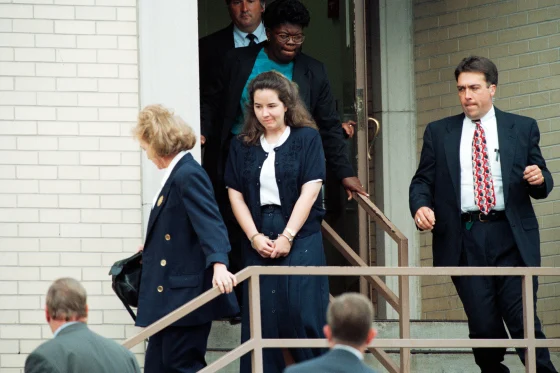Susan Smith Denied Parole 30 Years After Drowning Sons
- November 20, 2024
- 0
Smith Fails to Convince Parole Board for Release Susan Smith, infamous for drowning her two sons in 1994, was denied parole on Wednesday. The South Carolina woman made
Smith Fails to Convince Parole Board for Release Susan Smith, infamous for drowning her two sons in 1994, was denied parole on Wednesday. The South Carolina woman made

Susan Smith, infamous for drowning her two sons in 1994, was denied parole on Wednesday. The South Carolina woman made a tearful plea but failed to persuade the parole board.

Susan Smith shocked the nation 30 years ago when she let her car roll into a lake with her two young boys inside. Michael, 3, and Alex, 14 months, tragically drowned. At the time, Smith lied to police, claiming a Black man carjacked her vehicle. This false claim sparked a nine-day manhunt and dominated national headlines.
Hours after an emotional TV plea for her sons’ safe return, Smith confessed to their murder. Prosecutors revealed she killed her children because her lover didn’t want kids. A jury sentenced her to life in prison, with eligibility for parole after 30 years.
Appearing before the seven-member parole board via video, Smith admitted her crime was “horrible.” She said, “I would give anything to change it,” and apologized tearfully. However, the board unanimously denied her request.
David Smith, her ex-husband and the boys’ father, strongly opposed her parole. Accompanied by grieving relatives, he told the board, “This wasn’t a tragic mistake… She purposely ended their lives.” He added, “The time she has served is not enough.”
Smith’s attorney, Tommy A. Thomas, argued she had changed and deserved a second chance. He blamed her father’s suicide when she was 6 for triggering lifelong depression that led to her crime. Thomas read a statement from Smith: “I believed Jesus would take better care of them than I could.”
Still, many remain unconvinced. Tommy Pope, who prosecuted Smith in 1995 and now serves as South Carolina House Speaker pro tem, dismissed her arguments. “Susan always focuses on Susan,” Pope said, emphasizing her history of self-centered behavior.
Smith’s 30 years in prison have been marred by disciplinary problems. In 1997, she was caught with a razor blade. In 2000, two guards were convicted of having sexual relationships with her. Later, she faced penalties for drug use and other rule violations, including marijuana possession in 2015.
Despite this, Smith’s legal team highlighted her battles with mental health and suicide attempts. They argued that she overcame stigma and sought treatment for her depression. “She is not the same person who committed that crime,” Thomas insisted.
David Smith and his family vow to continue opposing her release. Speaking after the hearing, he said, “At least I know she’ll stay behind bars for now.” He confirmed plans to contest her parole when she becomes eligible again in two years.
The family wore pins featuring photos of Michael and Alex, determined to keep the memory of the boys alive. “This is about them,” David Smith said, describing the tragedy as a deliberate act of cruelty.
Smith’s case reignites debates over parole for high-profile criminals. Critics argue her actions warrant permanent imprisonment. Others point to her troubled upbringing and mental health struggles as reasons to consider rehabilitation.
Her letter to a South Carolina newspaper in 2015 added to the controversy. In it, she claimed, “Something went very wrong that night. I was not myself… I am not the monster society thinks I am.”
Susan Smith’s crime remains one of the most chilling cases in recent history. Her failed parole bid reflects the weight of her actions and their enduring impact.
While Smith may claim personal transformation, the parole board’s decision underscores society’s demand for accountability. For now, justice for Michael and Alex prevails.
Highlighted Points:
As the nation remembers the tragic loss of Michael and Alex, their loved ones continue to seek justice, ensuring the case remains a stark reminder of the consequences of such heinous crimes.